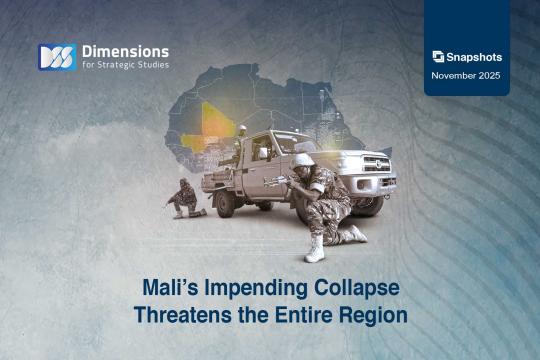
Emerging Regional and International Dynamics Influencing the Arab Path to Normalize Relations with the Syrian Regime
2023-10-022173 view
Recent indicators have pointed to significant challenges hindering the process of Arab normalization with the Syrian regime. A notable reflection of this setback was the recent Jordanian statements questioning the Syrian regime's control over its entire territory and doubting the feasibility of its return to the Arab League. The primary aim of Amman's rapprochement efforts with Damascus was to address its security concerns stemming from border issues.
According to information from Arab diplomats, as of September 25, 2023, the Arab liaison committee for the Syrian file has suspended contact with the Syrian regime. There's a prevailing inclination within the Arab League to exclude the regime from the league's committees, retaining only its membership. The United Arab Emirates recently joined the list of Arab countries urging the Syrian regime to address issues threatening its neighboring states, particularly the repatriation of refugees and curbing the drug trade, notably Captagon.
The motives behind the Arab countries' rapprochement with Syria were never homogeneous. Jordan's concerns over the escalating activities of Iranian militias near its borders and the increasing smuggling of weapons and drugs into Jordan played a significant role in its decision to get closer to the Syrian regime, facilitated by Russian mediation. In exchange for these overtures, Jordan sought guarantees from Russia to curtail these threats. However, Jordan later perceived Russia's apparent leniency towards Iranians in Syria, primarily to strengthen the Moscow-Tehran alliance in the aftermath of the Ukrainian conflict.
Conversely, Saudi Arabia showed willingness to engage with the Syrian regime. Riyadh pursued a strategy aimed at reducing tensions with Iran, hoping to mitigate the security threats emanating from Yemen through Iranian proxies. The Saudis also expressed interest in bolstering ties with Russia and China, searching for alternatives to what seemed like a waning US role in the Middle East.
Today, the contexts under which these rapprochement efforts occurred appear to be shifting. Jordan's reliance on Russia to secure the "Syrian-Jordanian" border and halt Iranian militia activities proved futile. Meanwhile, Washington signaled its intent to enhance its regional presence, evidenced by sending F35 aircrafts to Jordan and Qatar, boosting its naval presence in the Gulf, and initiating negotiations with Riyadh. This was accompanied by renewed aggressions by the Houthi group targeting the Saudi-Yemeni border, thereby jeopardizing the region's stabilization efforts.
Another detractor from the success of Arab and Turkish rapprochement with the Syrian regime is Iran's exhibited influence over the regime's decisions, both politically and on the battlefield. Tehran-backed militias continue to operate near the Jordanian border and the Golan Heights, with the regime seemingly either unable or unwilling to intervene. Alongside this, there are uncertainties surrounding Russia's future involvement given its significant commitments in Ukraine.
While the current environment doesn't necessarily imply a return to the pre-2018 rift between the Arab world and the Syrian regime, it's evident that the normalization path is moving towards a comprehensive freeze until further notice.





